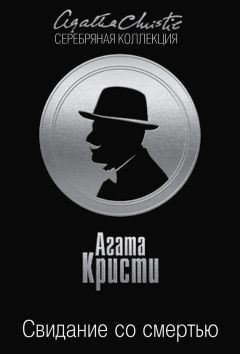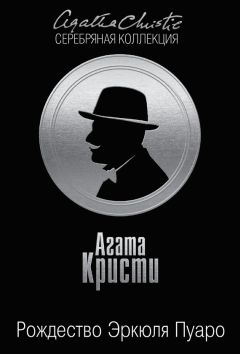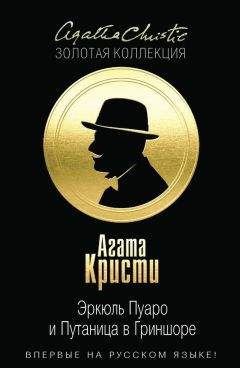Arthur Conan Doyle - Английский язык с Шерлоком Холмсом. Собака Баскервилей
regret [rɪˈɡret], possibility [ˌpɔsǝˈbɪlɪtɪ], source [sɔ:s]
"The more reason why you should avoid a public investigation."
"I will tell you, then. If you have heard anything of my unhappy history you will know that I made a rash marriage and had reason to regret it."
"I have heard so much."
"My life has been one incessant persecution from a husband whom I abhor. The law is upon his side, and every day I am faced by the possibility that he may force me to live with him. At the time that I wrote this letter to Sir Charles I had learned that there was a prospect of my regaining my freedom if certain expenses could be met. It meant everything to me — peace of mind, happiness, self-respect — everything. I knew Sir Charles's generosity, and I thought that if he heard the story from my own lips he would help me."
"Then how is it that you did not go?"
"Because I received help in the interval from another source."
"Why, then, did you not write to Sir Charles and explain this?"
"So I should have done had I not seen his death in the paper next morning."
The woman's story hung coherently together (рассказ женщины был связным и последовательным; to hang together — быть связным, логичным; coherent — связный, последовательный), and all my questions were unable to shake it (и все мои вопросы не могли поколебать его /логику/; to shake — трясти; ослабить, поколебать). I could only check it by finding (я мог его проверить, лишь разузнав) if she had, indeed, instituted divorce proceedings against her husband (действительно ли она начала бракоразводный процесс против своего мужа; to institute — основывать; начинать) at or about the time of the tragedy (во время трагедии или около того).
It was unlikely that she would dare to say (непохоже, чтобы она осмелилась утверждать) that she had not been to Baskerville Hall (что она не была у Баскервиля) if she really had been (/в случае/, если действительно была), for a trap would be necessary (поскольку необходим был экипаж; trap — ловушка; рессорная двуколка) to take her there (чтобы доставить ее туда), and could not have returned to Coombe Tracey (и /она/ не могла вернуться в Кум-Трэйси) until the early hours of the morning (до самого: «до ранних часов» утра). Such an excursion could not be kept secret (такое путешествие не могло оставаться в тайне; to keep secret — держать в секрете). The probability was, therefore (поэтому возможно), that she was telling the truth (что она говорила правду), or, at least, a part of the truth (или, по крайней мере, часть правды). I came away baffled and disheartened (я уехал озадаченным и в унылом /настроении/; to dishearten — приводить в уныние).
coherently [kǝuˈhɪǝrntlɪ], shake [ʃeɪk], necessary [ˈnesɪs(ǝ)rɪ]
The woman's story hung coherently together, and all my questions were unable to shake it. I could only check it by finding if she had, indeed, instituted divorce proceedings against her husband at or about the time of the tragedy.
It was unlikely that she would dare to say that she had not been to Baskerville Hall if she really had been, for a trap would be necessary to take her there, and could not have returned to Coombe Tracey until the early hours of the morning. Such an excursion could not be kept secret. The probability was, therefore, that she was telling the truth, or, at least, a part of the truth. I came away baffled and disheartened.
Once again I had reached that dead wall (снова я наткнулся на глухую стену; to reach — протягивать; дотягиваться) which seemed to be built across every path (которая, казалось, возникала: «строилась» на каждой тропке) by which I tried to get at the object of my mission (по которой я пытался добраться до цели своего задания). And yet the more I thought of the lady's face and of her manner (и все же, чем больше я размышлял о /выражении/ лица и поведении этой дамы; manner — способ; манера, поведение) the more I felt that something was being held back from me (тем больше чувствовал, что от меня что-то скрывают). Why should she turn so pale (с чего бы она так побледнела)? Why should she fight against every admission (почему она противилась каждому признанию = почему она ни в чем не сознавалась; to fight — бороться; admission — допущение; признание) until it was forced from her (пока /я/ силой не вытягивал это из нее)? Why should she have been so reticent (почему она молчала; reticent — молчаливый; скрытный) at the time of the tragedy (во время трагедии)? Surely the explanation of all this could not be as innocent (несомненно, объяснение всего этого не могло быть столь невинным) as she would have me believe (как она хотела заставить меня поверить). For the moment I could proceed no farther in that direction (пока я не мог действовать дальше в этом направлении; for the moment — в данный момент; пока; to proceed — продолжать; действовать, поступать), but must turn back to that other clue (а должен был вернуться к другой ниточке; clue — клубок; путеводная нить) which was to be sought for among the stone huts upon the moor (которую нужно искать в каменных хижинах на болотах; to seek).
across [ǝˈkrɔs], admission [ǝdˈmɪʃ(ǝ)n], explanation [ˌeksplǝˈneɪʃ(ǝ)n]
Once again I had reached that dead wall which seemed to be built across every path by which I tried to get at the object of my mission. And yet the more I thought of the lady's face and of her manner the more I felt that something was being held back from me. Why should she turn so pale? Why should she fight against every admission until it was forced from her? Why should she have been so reticent at the time of the tragedy? Surely the explanation of all this could not be as innocent as she would have me believe. For the moment I could proceed no farther in that direction, but must turn back to that other clue which was to be sought for among the stone huts upon the moor.
And that was a most vague direction (а это было самым неясным направлением). I realized it as I drove back and noted (я размышлял над этим, когда ехал назад, обращая внимание) how hill after hill showed traces of the ancient people (как холмы один за другим демонстрировали следы древнего народа). Barrymore's only indication had been (существовала единственная подсказка Бэрримора) that the stranger lived in one of these abandoned huts (о том, что незнакомец живет в одной из этих покинутых хижинах), and many hundreds of them are scattered throughout the length and breadth of the moor (а их многие сотни разбросаны по /всей/ длине и ширине болот). But I had my own experience for a guide (но мой собственный опыт служил мне проводником), since it had shown me the man himself (так как я сам видел этого человека: «мне самому был показан этот человек») standing upon the summit of the Black Tor (стоящий на вершине Черной Скалы). That, then, should be the centre of my search (значит она и будет центром моих поисков). From there I should explore every hut upon the moor (оттуда я смогу рассмотреть каждую хижину на болотах) until I lighted upon the right one (пока не увижу надлежащую = ту, что мне нужна; to light upon — пролить свет на; обнаружить). If this man were inside it (если незнакомец оказался бы внутри) I should find out from his own lips (я узнал бы из его собственных уст), at the point of my revolver if necessary (под прицелом моего револьвера, если необходимо; point — точка; прицел), who he was and why he had dogged us so long (кто он есть и почему так долго выслеживает нас). He might slip away from us in the crowd of Regent Street (он мог ускользнуть от нас в толпе на Риджент-стрит), but it would puzzle him to do so upon the lonely moor (но ему будет сложно сделать то же на безлюдных болотах; to puzzle — приводить в затруднение, озадачивать). On the other hand (с другой стороны), if I should find the hut and its tenant should not be within it (если я найду хижину, а ее обитателя в ней не окажется) I must remain there (я должен буду оставаться там), however long the vigil (каким бы долгим ни было ожидание; vigil — бодрствование; дежурство), until he returned (пока он не вернется). Holmes had missed him in London (Холмс упустил его в Лондоне). It would indeed be a triumph for me (и это в самом деле стало бы моим триумфом) if I could run him to earth (если бы я смог схватить его; to run to earth — скрыться в нору; загнать норного зверя в нору; to run smb. to earth — выследить, разыскать /кого-либо/) where my master had failed (тогда как мой учитель не имел /в этом/ успеха; master — хозяин; учитель).
throughout [Ɵru:ˈaut], breadth [bredƟ], vigil [ˈvɪdʒɪl]
And that was a most vague direction. I realized it as I drove back and noted how hill after hill showed traces of the ancient people. Barrymore's only indication had been that the stranger lived in one of these abandoned huts, and many hundreds of them are scattered throughout the length and breadth of the moor. But I had my own experience for a guide, since it had shown me the man himself standing upon the summit of the Black Tor. That, then, should be the centre of my search. From there I should explore every hut upon the moor until I lighted upon the right one. If this man were inside it I should find out from his own lips, at the point of my revolver if necessary, who he was and why he had dogged us so long. He might slip away from us in the crowd of Regent Street, but it would puzzle him to do so upon the lonely moor. On the other hand, if I should find the hut and its tenant should not be within it I must remain there, however long the vigil, until he returned. Holmes had missed him in London. It would indeed be a triumph for me if I could run him to earth where my master had failed.
Luck had been against us again and again in this inquiry (фортуна постоянно: «снова и снова» была против нас в этом деле; luck — счастье; судьба), but now at last it came to my aid (но теперь наконец пришла мне на помощь). And the messenger of good fortune was none other than Mr. Frankland (и вестником удачи был не кто иной, как мистер Фрэнклэнд), who was standing, grey-whiskered and red-faced (который стоял, краснолицый и с седыми бакенбардами), outside the gate of his garden (с наружной стороны садовой калитки), which opened on to the high road (выходящей на широкую дорогу; to open on — выходить на, вести /куда-либо/; high road — магистраль; главная дорога) along which I travelled (по которой я проезжал).
"Good-day, Dr. Watson (день добрый, мистер Ватсон)," cried he, with unwonted good humour (закричал он, /будучи/ в непривычно хорошем настроении), "you must really give your horses a rest (вы обязательно должны дать отдых лошадям), and come in to have a glass of wine and to congratulate me (и зайти выпить стаканчик вина и поздравить меня)."
My feelings towards him were far from being friendly (мои чувства к нему были отнюдь: «далеко» не дружескими) after what I had heard of his treatment of his daughter (после того как я услышал, как он обращался с дочерью), but I was anxious to send Perkins and the wagonette home (но я очень хотел отослать Перкинса с экипажем домой), and the opportunity was a good one (а возможность была подходящей). I alighted and sent a message to Sir Henry (я вышел из экипажа, написав: «послав» записку сэру Генри; to alight — сходить, выходить, высаживаться /из поезда, автобуса и т. п./; спешиваться) that I should walk over in time for dinner (что приду к обеду вовремя). Then I followed Frankland into his dining-room (потом я проследовал за Фрэнклэндом в его столовую).




